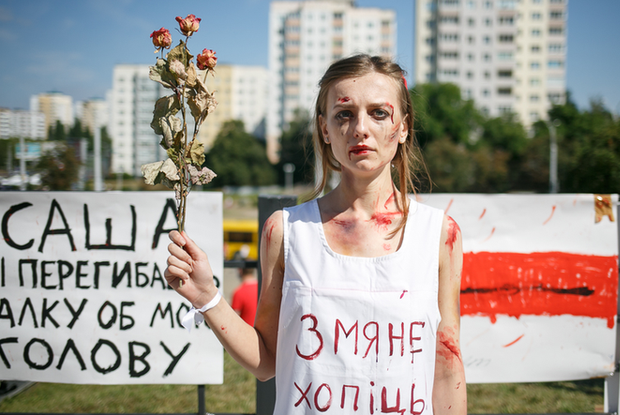Human Rights in Belarus Remain a Focus of Western Attention
 The situation has gotten better
The situation has gotten better

Despite the West’s attention to the Russian-Ukrainian conflict, human rights violations in Belarus remain on the international agenda. The extension of the mandate for the Special Rapporteur on Belarus along with a report from the Human Rights Council indicate groundwork is being laid for assessing the persecutions in Belarus as crimes against humanity.
On April 4th, the UN Human Rights Council at its 55th session in Geneva adopted a resolution on the human rights situation in Belarus. The Council decided to extend the mandate of Anais Marin, the Special Rapporteur on the situation of human rights in Belarus, for another year. The Special Rapporteur is tasked with continuing to monitor developments, make recommendations, conduct consultations with interested parties, and present a report on the human rights situation in Belarus to the Council and the General Assembly in 2025. The United States co-sponsored the UN resolution on continuing reporting on Belarus.
The UN Human Rights Council also resolved to urgently establish a group of three independent experts on the situation of human rights in Belarus for a year (with the possibility of extension). The resolution strongly urges the Lukashenka regime to fully comply with international human rights obligations and to renew the national dialogue on a moratorium and the ultimate abolition of the death penalty.
French citizen Anais Marin was appointed as the UN Special Rapporteur on the situation of human rights in Belarus in late September 2018. This position was created following the harsh suppression of a protest action against the falsification of the 2010 presidential elections in Belarus.
The extension of the UN Special Rapporteur’s mandate is a consequence of serious attention to the human rights situation in Belarus. Previously, on March 15th, the UN Human Rights Council published a report on the human rights situation in Belarus before and after the 2020 presidential elections. The preliminary unedited version states grounds for regarding the persecutions in Belarus as a crime against humanity.
The report discusses alleged human rights violations, information about which the Office of the High Commissioner for Human Rights (OHCHR) collected, summarized, preserved, and analyzed. It also makes conclusions in accordance with the applicable international legal framework and offers recommendations to the government and the international community, including holding those responsible accountable through proceedings in national courts based on universally accepted principles of extraterritorial and universal jurisdiction.
The report addresses the closure of NGOs, changes in legislation, political prisoners, and their detention conditions, including incommunicado detention, repression against the media, disbarment of lawyers, expansion of “extremist” lists, searches, arbitrary arrests, torture, deaths during protests and in detention, and forced emigration.
According to the OHCHR, since May 1, 2020, more than 5,500 people, including at least 55 children, have been criminally convicted on politically motivated charges. Out of 657 people interviewed since 2020, 29% reported being tortured and 61% reported cruel treatment. Some victims sustained long-term and even life-altering injuries, including aneurysms, hearing loss, restricted mobility in shoulder, hip, and knee joints, fractures of the bones of the arms, legs, nose, and spine, as well as nerve damage. Health consequences such as high blood pressure, chronic kidney diseases, depression, post-traumatic stress disorder (PTSD), panic attacks, and sleep problems were mentioned. Most victims were men, including one person with a disability.
The OHCHR found that detainees were subjected to intense pressure and violence, often amounting to torture, during initial interrogation and evidence gathering in 38 cases in 2022 and in 9 cases in 2023. The violence occurred after arrest in police vehicles and/or during interrogations at the offices of the GUBOPiK in Minsk and police stations across all regions of Belarus. The OHCHR reports grounds to believe that Belarusian security forces committed rape and other forms of sexual and gender-based violence, including sexualized torture and forced nudity.
Based on the totality of evidence gathered, the OHCHR has reasonable grounds to believe that a crime against humanity in the form of persecution, along with other accompanying acts that may be established as a consequence of the described human rights violations, was committed.
Subscribe to our newsletter




Situation in Belarus
Constitutional referendum: main consequences


 Video
Video
How to count the political prisoners: are the new criteria needed?


 Video
Video
Paternalism In Decline, Belarusian Euroscepticism, And The Influence Of Russia


 Video
Video












